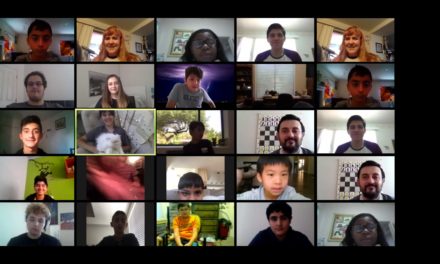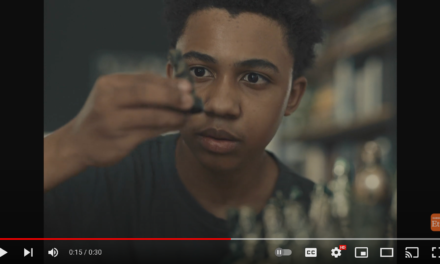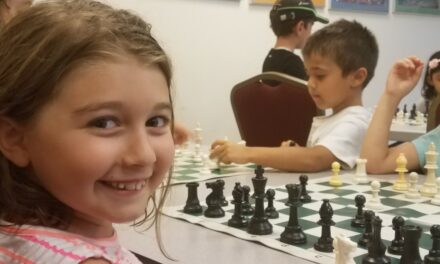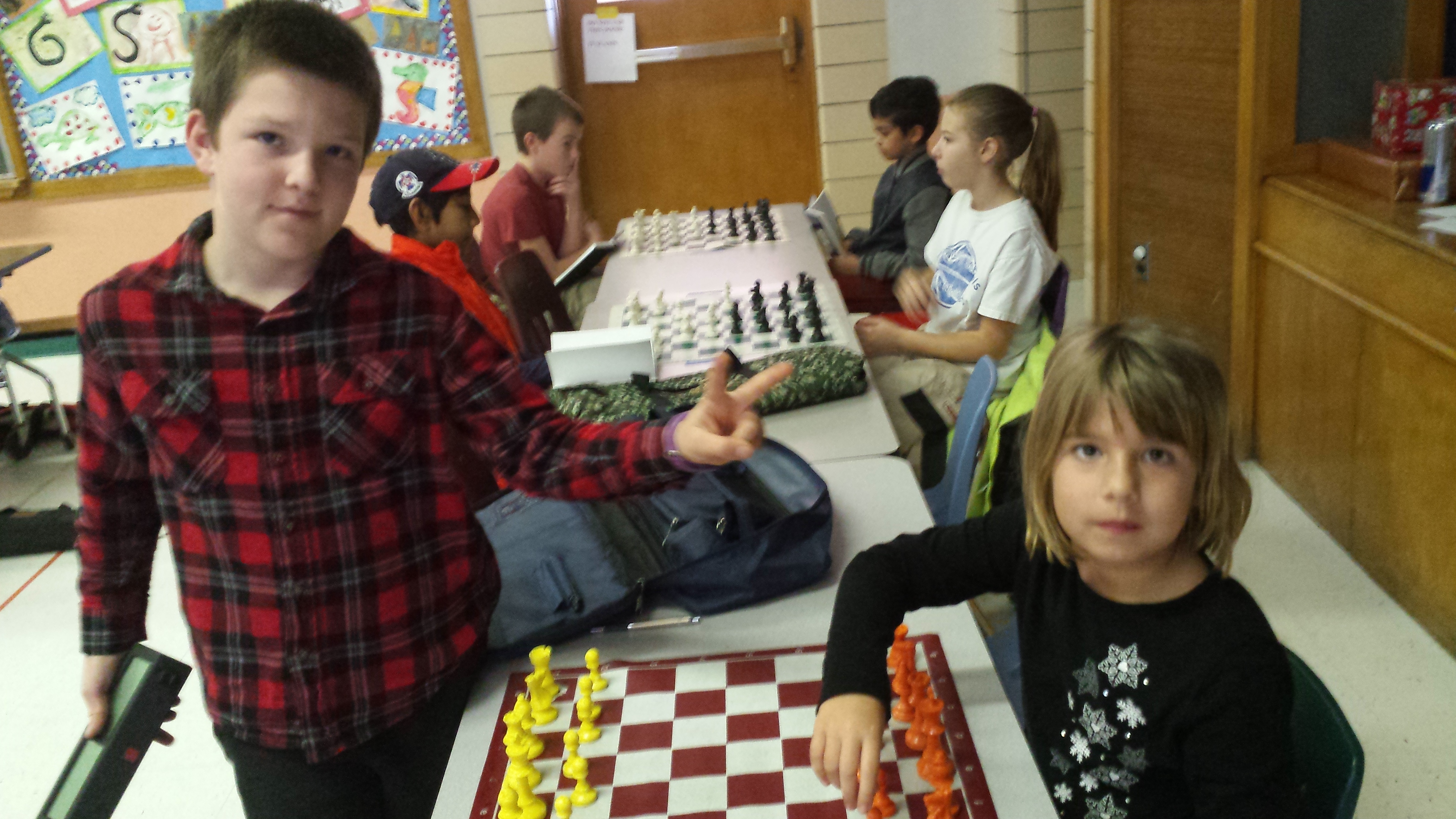The Chicago Open had always been somewhat of an annual failure for me. Prior to this year, I had never scored over 2.5 points out of the 7 possible. But this year I went into the tournament hall of the Westin in Wheeling, Illinois, not far out of Chicago, with my unwavering eyes set on the prize. By round three of the fast-moving two-day schedule, I had already broken my high score in an airtight fashion. By the finish of the tournament I was still undefeated, with all wins save for two draws. Of course, one of those draws was to secure a quick first place finish in the last round.
As it always is when you’re playing well, the tournament atmosphere was great. Three of my chess friends from Indiana joined in on the euphoria as I showed them my wins in their room upstairs, which I happily invited myself into. Two of them were playing in the U2100 section and their games were always an eye-opener into the world of experts. One of my other friends was playing in my section, the U1900, and she skyrocketed 100 greatly deserved points from the tournament and finished a full point behind me, although originally being one of the lowest rated in the section.
I always find it interesting to watch the reactions of the players to their results in such a high-pressure tournament situation. After losing, some people would bury themselves in a corner with a netbook, a database, and Rybka until they figured out which move of theory they couldn’t remember or what tactical blow they missed. Others shook it off easily and headed to the Italian restaurant across the street for some excellent lasagna, their sights set on their next game. Some winners flaunted their games in front of everyone, while others launched into deep analysis with their opponent in the Skittles room directly after the game. Great entertainment also lay in the reactions of the parents. While some would smother their children with unending praise and affection, others voiced their disappointment quite loudly and critiqued the opening, sending their children to bed without dinner for finding one second-best move.
When I wasn’t engaged in one of the three main activities of my life–that is, eating, sleeping, or playing chess– I was either in the Skittles area (the area of the tournament designated for analysis or blitz) admiring the crazy tactical wins of my Smith Morra-obsessed friend, or in my friend’s room, stealing all the cookies her mother had gotten from Panera or joining her in hopping on beds. (I’d like to graciously thank Matt Dahl and Daniel Ryker for locking me in a closet and therefore giving me time to go over my last game.) This is typical of my pre- and post- round activities during a tournament.
After forcing a win out of a mid-1600 as black in round one, I moved on to round two against a fellow 1800 in good spirits. I gained a tiny advantage as white in the opening but blew it on a strong-looking attack and struggled to equalize after his defense. I was sure to lose. Then, in a crushing position, he lost a rook to a knight fork in the corner and promptly resigned. After outplaying me the whole game, he brokenheartedly shook my hand and made a comment about the 64 squares. I was just happy to escape unscathed from a near-death situation. My strong opponent recovered, however, and won $640. Interestingly enough, he killed my attack with …Nh7 and at the end of the game I won his rook with Nh7+. H7 was a popular square.
In round three I won an endgame by kicking his Knight into a corner and winning it with a King and Bishop. I then had 3 points, more than I’d ever had at the Chicago Open before. Noticing my good fortune, a friend told me in some interesting words to not press too hard for a win in order to stay with a perfect score; a draw could suffice if necessary. But it was my opponent who was in need of this advice, seeing as he inaccurately flung his pieces at my king from move 1. I defended properly and took the material he offered up, and, in the end, he lacked compensation and resigned.
In round five my opponent left for forty minutes on move two and didn’t lose on time. He surely wasn’t cheating, because I gained the advantage and on my way to converting it, missed a win by trying too hard to keep him from getting counterplay. Going into round six, I had 4.5 points out of the 5 rounds and was in a three-way tie for first. I was definitely very happy with my score and very confident going into round six, as I had been going into every round all tournament.
In round six I game upon some great fortune. The other two players with 4.5 drew, and that meant that a win would put me in clear first. I already had a stronger position when they accepted their position as drawn. I warded off any counterplay, won material and then the game.
With round seven approaching, I called my coach IM Levon Altounian. He told me to offer a drawn once I equalized as black. If my opponent, a half point behind me, declined for more money, I was to play it out soundly, but with no risk-taking. But when I reached the board, he had his hand held out for a draw, content with 5.5 points. Although I was first shocked, I agreed happily and got home faster than most of my friends finished their games.
* Sameer Manchanda is this year’s Winner of the Chicago Open, Under 1900 Section. He has been taking internet lessons from Levon for about a year, and this was his first major success.





